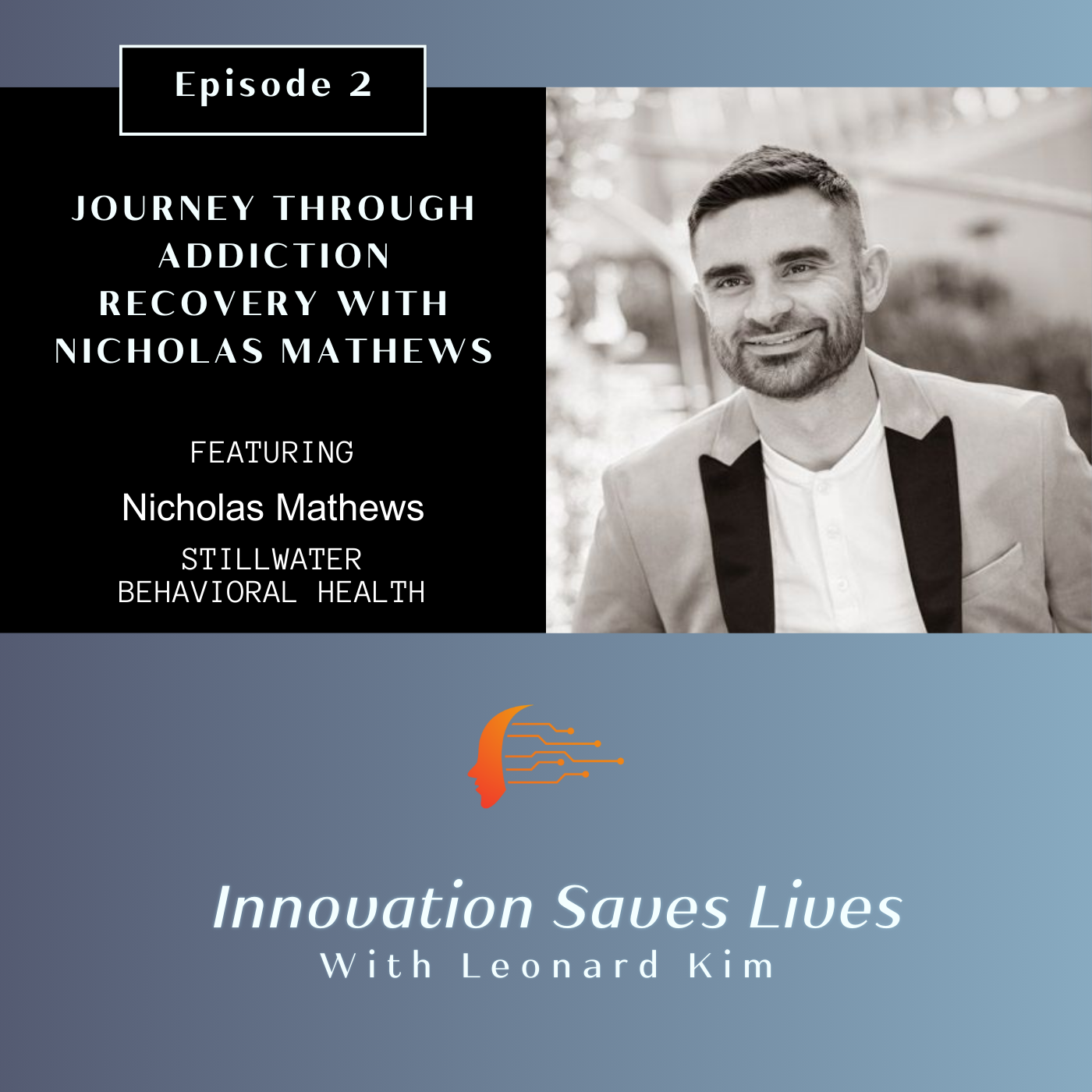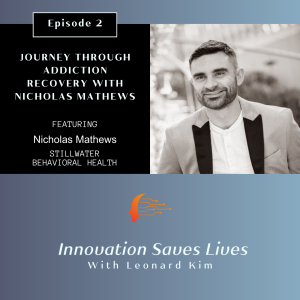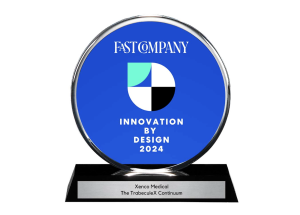Physics Professor Dr. Rashad Richey has been studying the intricacies of brainwaves in a way that could lead to a medical revolution. Armed with the provisional patent from the United States Patent & Trademark Office for his Neurological Brain Entrainment Device (NBED) and a medically certified, double-blind, peer-reviewed published case study in the International Journal of Science and Research titled “Reversing Alzheimer’s: Efficacy of Non – Invasive Quantum Therapies on Human Physiology.”
Dr. Richey and his research team are pioneering the landscape against Alzheimer’s disease, a degenerative brain condition that has no known medical cure. “He’s like a machine – constantly researching, developing, creating, guiding, and learning. His knowledge in multiple science disciplines provides innovative perspectives. This device has the potential to transform the world. I’m honored to be on the team”, said Dr. W. Carhee, who’s the administrator for a Georgia-based medical center specializing in brain and spinal care.
When asked what made him focus on researching human cognition, Dr. Richey said, “As a young child, I remember watching my grandmother lose her awareness and memory. She was such a caring person. Seeing her there, but not there, was one of the most difficult experiences of my childhood. Being told nothing could be done never sat right with me.”
The device, which is a culmination of extensive research in brainwave synchronization, could lead to a future where experts would potentially not just halt but reverse Alzheimer’s debilitating effects, offering hope to millions. He notably discussed how he believes quantum physics is the key that will lead to more groundbreaking medical research discoveries as the keynote presenter in Knoxville, Tennessee, at the annual National Society of Black Physicists Conference 2023, the largest professional gathering of Black physicists in the world.
“We meet with Dr. Richey’s team weekly to review progress and functionality of the device. The work it takes to bring a device like this from conception to creation, requires significant engineering expertise. The engineering team at Prototype House believes in the efficacy of the, and Dr. Richey’s leadership. We are anticipating great results in the clinical trials,” said Andrew Gorman, Prototype House Project Manager.
The Birth of a Breakthrough
Dr. Richey’s foray into physics was unorthodox. Driven by a pursuit of knowledge and a mission to apply that knowledge for change, Dr. Richey, who already holds several advanced degrees, is currently a fully-scholarshipped doctoral student in the research-based Ph.D. program in Quantum Physics at the Paris Graduate School – Innovative Knowledge Institute (PGS). It is a college registered with the French Ministry of Education, approved by Bureau de Certification International and Qualiopi — a mandatory quality standard accreditation created by the new public institution “France Competencies,” harmonizing the practice and quality of training institutions in France.
As a private higher education provider, the institution operates under the French Code — Decree of January 25th, 1876, Articles L. 731-2, L. 731-3, and L. 731-4 — since June 25, 2013, under receipt No. E-13-09 to offer higher education awards. PGS’s academic partners include Accord Ecole de Langues, the University of Liberia, the Global Counter-Terrorism Institute, and the SMS Higher Education Group. A leader in international education, PGS is an institutional member of ACUNS – Academic Council on the United Nations System.
Dr. Carhee added,“What Dr. Richey is attempting to accomplish intersects so many sciences that having an American physicist, French research scientist, a chiropractor specializing in brain and spinal care, coupled with the medical center’s resources and neurosurgeon, simply made sense.” Dr. Richey’s team also includes an auditory (sound frequency) engineering consultant, who’s a former United States Army Major.
Dr. Richey serves as PGS’s professor of physics and is on the faculty at Morris Brown College. He has been invited to provide keynote presentations and lectures at the University of Michigan, Clark Atlanta University, Reinhardt University, Morehouse School of Medicine, Albany State University, and other notable institutions in various academic disciplines.
The Neurological Brain Entrainment Device is the fruit of Dr. Richey’s laborious journey through the complexities of neural entrainment. The provisional patent is a testament to his work’s novelty and potential impact. The device operates on the principle that brainwaves can naturally align with external sound frequency stimuli, namely 40 Hz frequency rhythms — vibrational congruences, photo-biomodulation methods, and other unique frequency modalities found in his published research. Dr. Richey’s invention aims to guide the brain into beneficial states of consciousness by inducing these stimuli at specific frequencies.
“Imagine the possibility of fine-tuning the brain, increasing neuronal activity, and alleviating the symptoms of Alzheimer’s… without a pill,” Dr. Richey says. “That’s the future we’re working towards.”
A Leap in Cognitive Health
The Neurological Brain Entrainment Device is speculated to be more than just another scientific apparatus. It potentially could be a lifeline for those grappling with Alzheimer’s — a disease that has been a relentless thief of memories and identities.
Dr. Richey’s invention uses brainwave entrainment principles, aiming to reverse the effects of this condition. “Our preliminary studies have shown promising results,” Dr. Richey notes, referencing the case study that has captured the medical community’s attention. “We’re in the early stages of research, which is why more research has to be done. But it’s clear, the science indicates we’re on the cusp of not just understanding Alzheimer’s but potentially actively combating it.”
The implications of Dr. Richey’s invention extend far beyond theory. In a published case study, a participant diagnosed with Alzheimer’s showed remarkable recovery of cognitive abilities after using the device, challenging the notion that the disease is an irreversible decline.
Before starting the case study, the respondent, who had an Alzheimer’s diagnosis, had blood pressure that was 144 over 125. Five days after utilizing the device, the respondent’s blood pressure normalized to 109 over 77. The respondent also showed significantly enhanced memory recall. The participant’s profile reflected a memory recall score of 29 out of 30, verified by the medical summary. The case study notes other positive physiological outcomes, which warranted further research. The cognitive breakthrough aligns with similar research at the Massachusetts Institute of Technology (MIT), where sound frequencies have been shown to enhance cognition, suggesting a new frontier in neurological therapy. Dr. Richey’s case study also noted improvements in normalizing hypoglycemia.
“To give someone back their sense of self is the most profound impact we can make,” Dr. Richey explains.
The journey from concept to clinical application is laden with challenges, but the Neurological Brain Entrainment Device has cleared a significant hurdle by obtaining approval from an Atlanta-based medical center specializing in brain injury recovery to begin clinical trials in 2024. This milestone marks a critical step in bringing the team’s vision to the masses and potentially altering the landscape of Alzheimer’s treatment and other co-related brain diseases, changing the paradigm of how we understand human cognition.
“The provisional patent is just the beginning,” Dr. Richey states with conviction. “The real work starts when we move from the research phase and bring this therapy to those in need. That takes patience, the scientific method, and undeniable proof.”
Dr. Brian Hodges, who was one of Richey’s professors during undergraduate studies said, “I recall how much passion, capacity, and love for community Richey demonstrated while completing his undergraduate studies with us. I still reminisce on reading Richey’s papers — his sense of conscientiousness and valuation was unmatched. I’m amazed that some of his past classmates still discuss his level of scholarship, which has motivated several of them to pursue graduate studies because of Richey’s paradigm and model. We are all profoundly proud of Dr. Richey and proud he is an alum.”
The Multidisciplinary Scholar
A multidisciplinary scholar works with knowledge from multiple academic disciplines while maintaining the boundaries of those disciplines. Dr. Richey, an outspoken champion for diverse higher educational experiences and research-based approaches to remedy some of the most pressing challenges in our culture today, is the epitome of this.
Dr. Richey, who has peer-reviewed published research in multiple academic disciplines, completed doctoral studies in federal higher education policy reform at Clark Atlanta University (CAU), a private research university in Atlanta, Georgia, and the first Historically Black College or University (HBCU) in the Southern United States. His doctoral committee supervisor, Dr. Chike Akua, a recognized national scholar and CAU professor, said, “Dr. Richey was a stellar student while working on his doctorate at Clark Atlanta University. It was clear that he was already doing impactful work in the community and preparing himself to be of even greater service”.
He later enrolled in a postdoctoral program at Azteca University, earning a Doctor of Science in Immigration Law & World Economies. His research at Azteca University provides humanitarian solutions to undocumented immigration in the United States without Congress passing new laws. Dr. Richey’s research was supervised by Dr. Ricardo Saavedra and co-supervised by Dr. Maria Elena Brito, Dr. Remulus Della Valle, and Jessica Stern, Esq.
Professor Saavedra added, “It was an honor having Dr. Richey as a student scholar. His doctoral research thesis received some of the highest marks possible from the doctoral committee supervisors. A true statement to Dr. Richey’s scholarship. We’re proud that he is now an international alumnus of Azteca University — this is the type of scholar our university is proud to have as a great professional model for our future government and for our student community. We’re looking forward to Dr. Richey marching across the stage at this year’s graduation Commencement Ceremony Class 2024.”
Dr. Richey’s peer-reviewed and published doctoral thesis is titled “Immigration Policy Contextualized Through American Political Interests, Economic Market Manipulation, and Legal Rulings.”
He also holds an MBA and Doctor of Jurisprudence (JD), serving as the Managing Partner for the Washington D.C.-based law practice, The Fairness Firm – Law Office of Richey & Wilson, specializing in international law, human rights, civil rights, and catastrophic injury litigation.
“Dr. Rashad Richey is one of the most dedicated and brilliant public policy, human rights policy, and international law scholars you will meet. His leadership at The Fairness Firm is unmatched,” said Erica Wilson, Attorney at Law and Managing Attorney for the International Law Group of Human & Civil Rights Attorneys P.C.
Jonathan Rapping, a law professor from one of Dr. Richey’s previous law schools, noted, “Born out of personal experience, Dr. Rashad Richey has an understanding of, and empathy for, those who have been deemed expendable by society. He overcame incredible odds to build a platform to lift up the stories of those who have been silenced and to open the eyes of his audience to the inequities that fuel injustice. He is a truthteller who gives his time, talent, and treasure to create a better world for the next generation. I am honored to include him in my circle of friends who inspire me to fight for a better future.”
An Unorthodox Journey Into Physics
Informally, Dr. Richey has delved into physics for over 12 years, and during that span of time, took over 40 physics-related courses through MIT’s OpenCourseWare program, where full-length college courses are accessible for students who are self-starters seeking high-quality education taught by MIT faculty. While in law school, he started to explore the possibility of enrolling in a physics doctoral program once completing his JD.
After applying to a few universities, he was disappointed to learn that he would need either an undergraduate or graduate degree in physics to be accepted into doctoral research studies for such an advanced science subject.
Instead of giving up on his physics goals while in law school, Dr. Richey sought a program that fit his schedule. He duly enrolled in graduate studies for applied physics in January 2021, completing his master’s on January 27th, 2023, at Universidad Empresarial — International Division (UE) for English-speaking students. UE has an acceptance rate of 59%, with its main campus in the City of San Jose. The university is accredited by CONESUP — Ministry of Education in Costa Rica.
UE is academically ranked #19 out of 40 San Jose-based universities by EduRank and utilizes a para-university academic model to partner with foreign universities, including in the United States, providing program options in specialized areas of study not traditionally taught at the local campus. The university is authorized by the Asesoria Legal del Ministerio da Educacion NO. ATJ-167-CONESUP to operate internationally, offering higher education academic degree programs with agreements from partner universities through student contracts in subjects not offered at UE proper, allowing the university to expand their academic options, which include graduate programs.
Having a desire to understand more about agrophysics, Dr. Richey completed a second master’s in physics, earning his Master of Science in Agronomical Physics, a 40-credit graduate program through the Universite de la Renaissance (UR) in Port-au-Prince. The university’s Agronomical Sciences Department is reputable and focuses on modernity and research.
With a French-modelled higher educational system, the university has a cooperative academic framework agreement with the University of Rennes 2 — the largest institution for research and higher education in the fields of human sciences and social sciences in western France.
UR is accredited by the Minister of Education and Professional Formation, is a member of the Board of Regents (CORPUHA), listed in the World Higher Education Database (WHED) of the International Association of Universities (IAU) — the United Nations (UNESCO) consortium of universities.
UR academic degree programs have been evaluated and certified as congruent to regionally accredited universities in America by NACES (National Association of Credit Evaluation Services) approved agencies. His master’s thesis titled “Agronomical Physics Contextualized Through Interdisciplinary Connections to Earth’s Geomagnetic Field: A Synthesis of Edaphology and Human Physiology,” provides analytical research and physics equation models, some theoretical, proposing the need for a new interdisciplinary science to study earth, agriculture, geomagnetism, human physiology and the cosmos in concert.
Dr. Richey’s physics research continued to lead him more into the inner workings of human cognition and neurological functions, prompting him to enroll in a 1-year Master of Science in Neuroscience program at the Universidad del Pacifico de Nicaragua — also known as the University of Pacific (UNIP) — through their international student program. Karen Chang is listed as the university’s International Relations Officer. UNIP’s listed faculty include notable medical biochemist Dr. Kamesh Venkata Krishnan, psychologist Dr. Ling Mei Hsu, Dr. JiFeng Lui, and Dr. ShiWei Tsai.
Dr. Richey’s Master of Science degree is government-approved and accredited by the National Council of Universities of Nicaragua (CNU) and CNEA. UNIP is a listed member university with the International Association of Universities (IAU) — World Higher Education Database (WHED), a United Nations (UNESCO) collaboration. The institution also carries accreditation from the American Naturopathic Medical Accreditation Board. UNIP’s WHED number is IAU-027505.
Dr. Richey’s peer-reviewed and published master’s thesis, “Quantum Physics of Neuroscience Contextualized Through Human Neurological Applications: A Critical Analysis of the Central Intelligence Agency’s Declassified Gateway Process,” provides an analysis of the CIA’s once classified program in the 70s where human cognition, quantum mechanics, and consciousness were explored for military and intelligence gathering purposes. His research has been cited by scholars and researchers in America and abroad.
Using His Media Platform for Change
While Dr. Richey’s work in the laboratory, higher education, and lecture hall has been transformative, his influence extends beyond academia. He tackles current events through media, making them accessible and engaging to a broader audience.
An Emmy-nominated television news analyst and award-winning talk radio personality, who can be heard on News & Talk 1380-WAOK, V-103FM (HD3), SiriusXM Urban View Channel 126, and virtually all podcasts platforms, also blazes the trails on YouTube and Facebook, where he has over 2.5 million combined subscribers/followers. It highlights his dedication to his audience and social transformation.
Dr. Richey’s weekly live opinion news show, “Indisputable with Dr. Rashad Richey,” is nationally distributed through the TYT Network and syndicated on multiple national linear cable stations, earning the distinction of being named the “fastest growing TV news show in America” according to Hicks Evaluation Group. His podcast, “Indisputable,” an adaptation of the television news show, was recently ranked in the top 1% of most listened-to podcasts globally by Listen Notes. Dr. Richey connects the public to his role as an educator while democratizing the understanding of complex issues and public discourse.
“Media is a powerful tool for education, but requires both attention and intention” Dr. Richey asserts. “It allows us to share what’s happening in the world and, more importantly, it serves as a mirror to our daily lives and culture. Societal mirrors are meant to help us see what needs to be adjusted, aiding in our individual and collective development to become better versions of ourselves.”
The Future of Alzheimer’s Treatment
Dr. Rashad Richey’s work embodies the essence of innovation — bridging the gap between theoretical physics and practical medicine while embodying the potential of quantum physics to transform lives. With the Neurological Brain Entrainment Device, a new treatment and perspective on what healing means may be on the horizon.
When asked how he gets so much done in a day, Dr. Richey said, “We are more than physical beings, and capable of achieving feats congruent to our willingness to learn and will serve. God has given each of us a divine spark inside. Connecting to that divine spark will cause mountains to move out of your way.”
Dr. Richey’s message beams with optimism as he looks ahead to the clinical trials, “In every neuron, there’s a story waiting to be reclaimed. This is where we turn the page on Alzheimer’s.”













